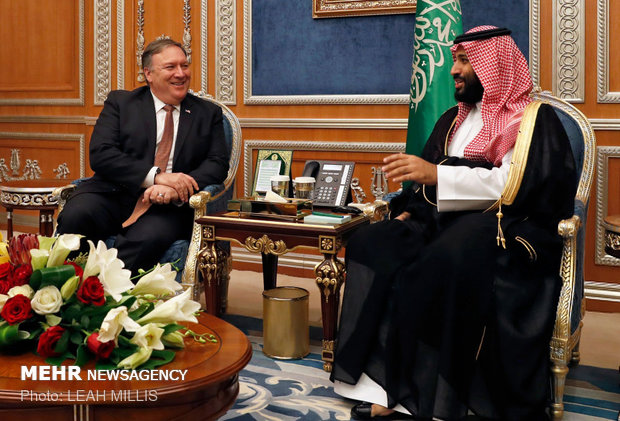The Saudi Interior Ministry recently issued a statement on the execution of 37 people in the Saudi Arabia. It has been claimed that the executed individuals were sentenced to death for involvement in terrorist cases.
The fact is that the executed people are not terrorists. They were Shias who have been oppressed by the Saudi regime for decades. This is not the first time that the Saudi regime has committed such terrible crimes against Shias, and it is clear that it won’t be the last.
Accordingly, we reached out to Bangkok- based geopolitical researcher Anthony Cartalucci.
Following is the full text of our interview with him:
What is your assessment of execution of 37 Saudi citizens by the rulers of the country?
Saudi Arabia - a nation that readily aids and abets Western interference and even military interventions around the globe - finds itself once again guilty in reality of what the West and Riyadh have accused nations like Syria and Iran of in fiction. The executions were done without fair or transparent trials and were motivated by politics, not justice.
If there are truly international standards regarding human rights, Saudi Arabia is blatantly in violation of them - not that it would seem so considering the deafening silence coming from many of the self-appointed arbiters of such standards including Western governments and the army of "international bodies" they have funded to allegedly confront such human rights abuses.
After brutal killing of Khashoggi in Saudi Consulate in Istanbul the international community’s reaction especially the White House’s to Saudi rulers’ crime was not serious enough. Would Saudi rulers dare to commit such crimes if they had faced with strong reaction from Washington?
Saudi Arabia would obviously be a different nation today if it faced consequences for its actions both abroad and at home. Of course, the White House doesn't base its ties with other nations on human rights, but rather obedience and utility - and Riyadh has both in abundance. For the US and other Western nations - human rights is merely a convenient pretext for political and even military intervention abroad - selectively enforced reflecting Western interests and opportunism, not any sort of principled stand.
What is the responsibility of international bodies to stop Saudi crimes?
In theory, we would imagine "international bodies" be they nongovernmental organizations (NGOs) or institutions like the United Nations - would be very vocal over Saudi Arabia's human rights abuses. But these same bodies are mute over Saudi Arabia's current war in neighboring Yemen, and Riyadh's sponsorship of terrorism including the arming and funding of groups like Al Qaeda and Daesh. So to expect these bodies to speak up or act in response to the recent executions is unrealistic.
Ultimately Riyadh will be held accountable when the "might" component of the "might makes right" basis of US foreign policy ebbs, and emerging global powers assume more influence and responsibility over regional politics. Without US protection, Riyadh would not only be unable to commit the crimes it does today both at home and abroad - it will be too costly politically and economically for it to continue doing so. It is ironic that the self-proclaimed underwriters of global human rights - the US and Europe - are in fact the greatest enablers of human rights abuses - with Saudi Arabia as "Exhibit A."
Interview by Payman Yazdani

























Your Comment